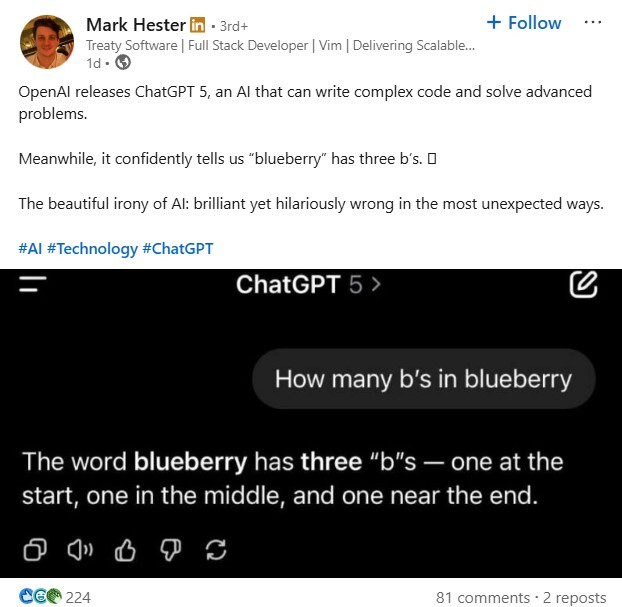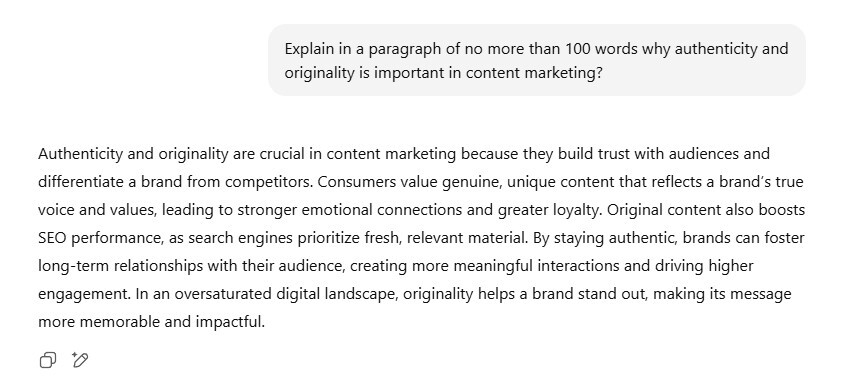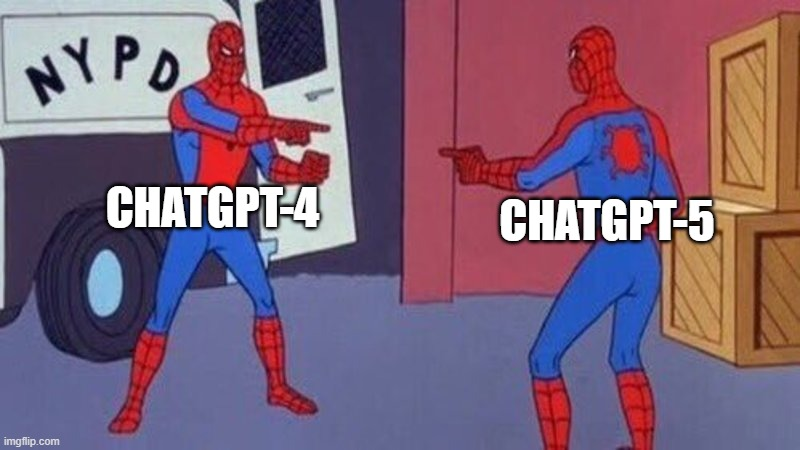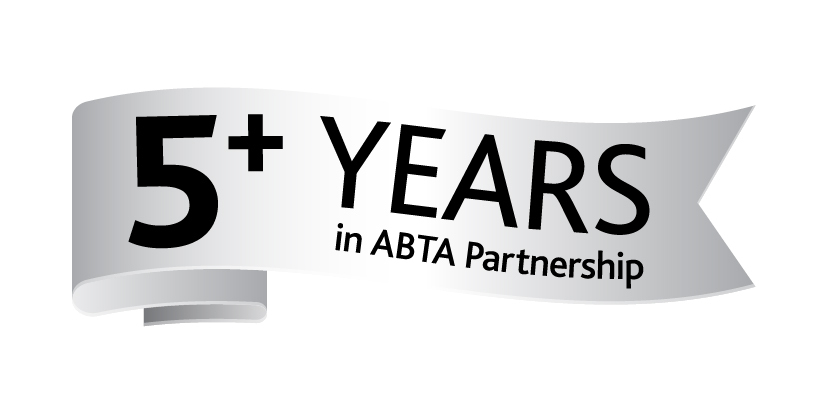After months of teasers from Sam Altman and a steady drip of speculation from the tech world commentariat, GPT-5 has finally landed. Declared ‘smarter, faster and more useful’ than anything that came before, OpenAI has boasted it can write code from scratch and explain complex theories with the precision of an academic. ‘Like talking to a PhD-level expert,’ Altman promised, as if GPT-4 had been an undergraduate and GPT-3 a mildly disengaged GCSE student.
For the record, I am not a PhD-level expert in anything (perhaps maybe Coronation Street serial killers 2005 – 2025, but Oxford University has confirmed that’s not a thing, despite my many phone calls and emails protesting otherwise). So given my meagre qualifications, can I really pooh-pooh OpenAI’s boffin-like proclamations?
Well, one thing we CAN confirm is that it can’t spell ‘blueberry’:

(Evidently, this has now been rectified after a significant amount of trolling – even from Merriam-Webster):

I’ve tried to trip it up myself - absurd hypotheticals, questions about my home town, even the old Monty Python African Swallow quandary - but so far, it handles them just fine. No hilarious hallucinations about glue on pizza – just reasonable and altogether accurate results.
But despite this, I can’t help thinking: is that it?
We’ve moved on from the eye-swivelling awe of late 2022, when ChatGPT burst onto the scene and blew our tiny minds. Since then, the tech has evolved but it feels like its capacity to dazzle has ground to a bit of a halt.
The hype gap
I'm not alone in my apathy. One tech commentator summed it up nicely:
The one prediction I got most deeply wrong was in thinking that with so much at stake OpenAI would save the name GPT-5 for something truly remarkable. I honestly didn’t think OpenAI would burn the brand name on something so mid. I was wrong.
Others feel so strongly about GPT-5 (deemed ‘horrible’ by some), they’ve set up a petition titled ‘Please Keep GPT-4o Available on ChatGPT’ which at time of writing, had almost 4,000 signatories. Just in the last couple of days, OpenAI has bowed to pressure and allowed users – just paid users mind you – to opt for the 4o version if they so wish.
This was clearly not turning out to be the jazz hands upgrade Sam Altman had in mind.
Same as it ever was
I could hand you a GPT-4o and a GPT-5 response on the same topic and you’d be hard-pressed to tell which was which. The words, the formulaic rhythm, the US spellings and grammar...it’s all just so, well, beige.

Looking at the output above I see no change in language style at all. It’s the same bland – albeit correct – slop.
It’s not changed much…but we have
Interestingly, while GPT-5 may not sound any more human than its predecessor, we might be sounding more like AI. A recent study found people are increasingly using ‘GPT words’ in everyday conversation - terms like ‘delve’, ‘underscore’ and ‘meticulous’ have reportedly spiked in frequency since ChatGPT’s launch.
And the word ‘elevate’ has seeped into the general vernacular, thanks in no small part to LLMs spewing out the word at every opportunity.

In other words, we’re not so much raging against the machine, but bowing before it. I can’t say I go down the pub and hear people chatting about ‘ever-evolving landscapes’ or ‘five ways to elevate your performance’, but I am hearing and reading more irksome corporate shmorporate lingo in general. At a recent tech conference, for instance, I heard the word ‘leverage’ being used so often, I started to develop a nervous tic.
Final thoughts
As mentioned above, I don’t have a PhD, so can’t really test it on intricate coding, complex legal theory or advanced neuroscience - but I can test it on general content writing and, from what I’ve seen so far, there’s no difference whatsoever. So, if you mainly use ChatGPT for content or copywriting, I can say with some confidence: move along, folks, nothing to see here.






